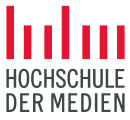Author: Immanuel Haag
Kubernetes (K8S) everywhere, but how?
In the last months, nearly everybody has been talking about Kubernetes. It’s incredible! This semester the Stuttgart Media University even held a training course on this topic. For DevOps or “cloud-computing specialist” mastering Kubernetes and the concepts around it is becoming more and more important.
Radcup Part 2 – Transition into Cloud
Written by: Immanuel Haag, Christian Müller, Marc Rüttler Several steps are necessary to transfer the Radcup backend to the cloud and make it accessible to everyone from the outside. These are explained in more detail in the following sections.
Radcup Part 3 – Automation with Gitlab CI/CD
Written by: Immanuel Haag, Christian Müller, Marc Rüttler The goal of this blog entry is to automate the previously performed steps. At the end all manual steps should be automated when new code changes are added to the repository. The new version of the backend will be made available in the cloud at the end.
Cloud security tools and recommendations for DevOps in 2018
Introduction Over the last five years, the use of cloud computing services has increased rapidly, in German companies. According to a statistic from Bitkom Research in 2018, the acceptance of cloud-computing services is growing. Cloud-computing brings many advantages for a business. For example, expenses for the internal infrastructure and its administration can be saved. Resource…

You must be logged in to post a comment.